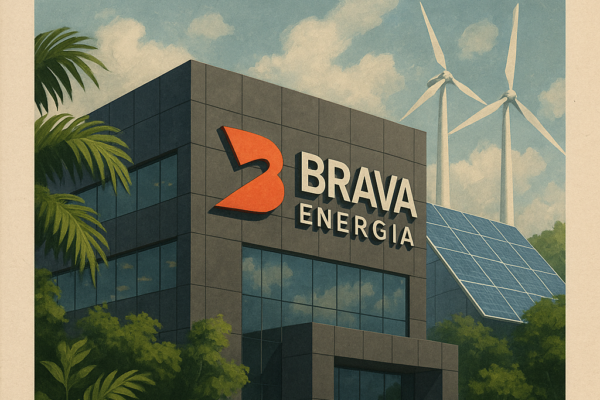Royal Dutch Shell’s exploratory discussions to acquire British Petroleum represent a watershed moment in energy sector consolidation, with potential ramifications extending across global markets, regulatory frameworks, and competitive dynamics. This potential $80+ billion transaction—which would rank among the largest energy mergers in history—emerges against a backdrop of divergent corporate trajectories, activist investor pressure, and accelerating industry realignment. Early-stage negotiations signal Shell’s ambition to create a European energy titan capable of rivaling American giants ExxonMobil and Chevron, while simultaneously addressing BP’s chronic underperformance through structural transformation. The proposed union faces multifaceted challenges including complex regulatory scrutiny, significant execution risk, and questions about strategic alignment in an era of energy transition[1][2][3][4].
💼 Seasoned CorpDev / M&A / PE expertise
Deal Dynamics and Market Reaction
Confidential negotiations between Shell and BP representatives entered an active phase in late June 2025, though sources emphasize discussions remain preliminary with no formal offer structure established. Market response proved immediate and asymmetric: BP’s NYSE-listed shares surged 7-10% to $32.94, reflecting investor optimism about acquisition premiums, while Shell’s stock declined approximately 3.76% to $67.50, signaling concerns about deal financing and integration risks[1][2][4][15]. The valuation gap between the companies has widened substantially, with Shell’s $208 billion market capitalization now dwarfing BP’s $79 billion valuation, creating conditions where strategic consolidation becomes financially plausible despite the transaction’s unprecedented scale[1][3][6].
Market analysts note the potential transaction would eclipse ExxonMobil’s historic $83 billion acquisition as the largest oil sector merger this century, fundamentally reshaping the competitive hierarchy. The absence of confirmed deal terms and cautious language from both companies—Shell referenced its “focus on performance, discipline and simplification” while BP remained silent—underscores the tentative nature of discussions[2][3][10]. Activist investor Elliott Investment Management’s 5% stake in BP adds pressure for transformative action, having previously criticized BP’s strategic direction as lacking urgency and ambition[7][15].
Strategic Drivers for Consolidation
Shell’s interest in BP stems from four interconnected strategic imperatives: production scale enhancement, trading dominance reinforcement, portfolio diversification, and capital efficiency optimization. A combined entity would control approximately 5 million barrels of oil equivalent per day (BOED), surpassing ExxonMobil to become the world’s largest publicly-traded hydrocarbon producer[5][8]. Particularly valuable is BP’s deepwater portfolio in the Gulf of Mexico and West Africa, which would complement Shell’s LNG leadership position while restoring upstream exposure Shell lost through its 2021 Permian Basin divestiture[7][14].
The merger would create unparalleled trading capabilities, combining Shell’s global LNG dominance with BP’s leading North American natural gas marketing operations. This synergy proves especially valuable in volatile energy markets where trading divisions generated disproportionate profits for both companies in recent years[9][14]. Trinidad and Tobago emerges as a critical strategic nexus, where BP’s reserves potential and infrastructure could unlock Shell’s previously unsuccessful exploration efforts in the region while creating near-monopoly control over Atlantic Basin LNG flows[14].
Financial Architecture and Accretion Analysis
JP Morgan modeling indicates a minimally accretive transaction requires precise financial engineering: a 20% acquisition premium ($96 billion enterprise value) with $3.5 billion annual post-tax synergies could deliver 13-14% annualized free cash flow growth using hybrid cash-equity financing. Pure equity financing would yield negligible accretion, while all-cash structures would dangerously leverage Shell’s balance sheet[8]. The synergy estimate—representing 4.4% of combined 2024 EBITDA—appears achievable through operational redundancies, trading desk consolidation, and supply chain optimization, though execution complexity remains substantial.
Shell CEO Wael Sawan’s consistent messaging about “value hunting” through share buybacks ($3.5 billion announced in Q1 2025) rather than transformative acquisitions establishes a contradictory backdrop. His prerequisite that any deal must “add to free cash flow per share in a relatively short period” establishes a high hurdle for BP’s integration[7][8]. BP’s weaker credit rating and more aggressive emissions targets introduce additional financial integration challenges, potentially increasing Shell’s weighted average cost of capital during a period of rising interest rates[8][13].
Regulatory and Antitrust Considerations
Antitrust scrutiny represents the most significant barrier to completion, with overlapping operations triggering multi-jurisdictional review. The combined entity would control approximately 15% of European retail fuel stations and 22% of UK forecourts, inviting Competition and Markets Authority intervention[4][7]. US Federal Trade Commission review would focus on Gulf of Mexico production concentration and potential wholesale market manipulation, while Australian regulators would examine LNG export market dominance[4][14].
Historical precedent suggests mandated divestitures would be required, particularly in retail marketing and refining segments where geographic overlaps prove most pronounced. The 2016 Shell-BG Group acquisition—which faced intense regulatory scrutiny over LNG market concentration—provides a procedural template, though the BP transaction’s scale multiplies complexity[7][13]. Political opposition may emerge in the UK, where combining two national energy champions could face parliamentary resistance despite both companies maintaining London headquarters[3][13].
Industry Implications and Competitive Realignment
A successful merger would trigger sector-wide realignment, potentially accelerating consolidation among mid-cap independents while forcing American supermajors to reconsider growth strategies. ExxonMobil and Chevron would face a European competitor with comparable upstream scale and superior trading capabilities, potentially reigniting their own acquisition strategies[4][8]. The transaction would validate activist investors’ push for consolidation as the optimal path to shareholder value creation in a capital-constrained environment.
The deal structure may establish new templates for energy transition financing, combining Shell’s conservative decarbonization roadmap with BP’s more aggressive (though recently scaled-back) net-zero commitments. A merged entity could reallocate capital more efficiently between hydrocarbon reinvestment and low-carbon initiatives, though environmental groups would likely challenge the expanded fossil fuel portfolio[5][13][14]. For national oil companies, the prospect of a strengthened European major could accelerate vertical integration strategies and downstream partnerships.
Execution Challenges and Alternative Scenarios
Operational integration presents unprecedented complexity given the companies’ combined workforce exceeding 150,000 employees and operations across 99 countries. Divergent corporate cultures—Shell’s engineering-centric operational model versus BP’s trading-oriented approach—would require careful synthesis to capture projected synergies[9][13]. Information technology systems integration alone could require multi-year migration programs across upstream, trading, and retail segments.
Should negotiations falter, alternative scenarios include BP pursuing asset divestitures to boost valuation, potentially accelerating its $20 billion disposal program announced in February 2025[7][15]. Shell could redirect capital toward selective acquisitions in renewable technology or carbon capture infrastructure, aligning with Sawan’s preference for “bolt-on” transactions rather than transformative mergers[6][7]. Elliott Investment Management might intensify pressure for BP leadership changes or structural separation should standalone performance continue lagging sector peers.
Conclusion: A Transformative but Uncertain Pathway
The Shell-BP exploratory discussions represent a logical but high-risk strategic response to converging market pressures: Shell’s ambition for global scale parity with American rivals, BP’s need for structural solutions to chronic underperformance, and investor demand for sector consolidation. While the industrial logic proves compelling—particularly in LNG leadership and upstream portfolio enhancement—the financial and regulatory hurdles remain substantial. Deal success hinges on Shell’s ability to secure favorable financing terms while convincing regulators that consumer interests won’t be compromised through reduced competition.
The negotiations occur against a backdrop of accelerating energy transition, where scale advantages must be balanced against portfolio flexibility. A combined entity would possess unparalleled resource base and market access but face increased stakeholder scrutiny regarding decarbonization commitments. Whether this potential combination ultimately advances or becomes another in the decades-long series of unrealized merger discussions between the British majors will depend on Shell’s risk tolerance and BP’s willingness to accept integration under potentially dilutive terms. The outcome will reverberate through global energy markets regardless of conclusion, establishing new paradigms for corporate strategy in the evolving energy landscape.
Sources
https://www.investopedia.com/bp-stock-jumps-after-report-that-it-s-in-merger-talks-with-shell-11760989, https://www.investing.com/news/stock-market-news/shell-considers-acquiring-bp-in-potential-mega-oil-deal--wsj-4111030, https://www.business-standard.com/world-news/shell-in-early-talks-to-acquire-london-based-oil-rival-bp-reports-125062501362_1.html, https://www.benzinga.com/trading-ideas/movers/25/06/46098937/shell-in-talks-to-acquire-bp-in-mega-merger-report, https://www.oil-store.co.uk/blog/rumours-of-shell-considering-bp-takeover-continue-to-grow/, https://www.offshore-technology.com/news/shell-targets-bp-acquisition/, https://csnews.com/shell-reportedly-considering-bp-acquisition, https://www.proactiveinvestors.com/companies/news/1071898/could-a-shell-bp-merger-really-work-it-depends-on-how-much-risk-shell-wants-to-take-1071898.html, https://www.youtube.com/watch?v=FzZaF4peddc, https://www.tradingview.com/news/reuters.com,2025:newsml_L4N3SS17Y:0-shell-in-early-talks-to-buy-rival-bp-wsj-reports/, https://www.tradingview.com/news/reuters.com,2025:newsml_FWN3SS08A:0-shell-in-early-talks-to-acquire-rival-bp-wsj/, https://events.reutersevents.com/energy-transition/global-energy-transition-new-york, https://en.wikipedia.org/wiki/Shell_plc, http://www.guardian.co.tt/business/shell-reportedly-eyeing-bp-acquisition-6.2.2299846.ef95e50c08, https://financialpost.com/pmn/business-pmn/bp-shares-surge-on-wsj-report-of-takeover-talks-with-shell





